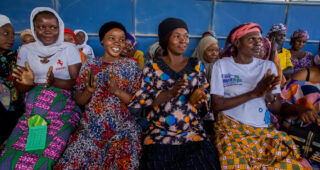Test and Treat
Amaka is a young woman living in Okrika, Rivers State, Nigeria. In 2021, when she was pregnant with her first child, she was tested for HIV during a community outreach, and she discovered that she is living with HIV. She was taken to Zonal Hospital Okrika, where she was started on antiretroviral treatment (ART) and counseled to start antenatal care.
“I was healthy, so I didn’t believe the result and was not taking the medications,” says Amaka. “I attended the traditional birth attendant because it is closer to where I live and my neighbors told me about the place and recommended, I give birth there [instead of at the hospital],” she says.
Amaka didn’t take her baby to the health facility for antiretroviral prophylaxis as she had been counseled.
But Amaka and her infant son did not fall through a gap in the health system. Through a quality improvement process, Zonal Hospital Okrika had established a system for tracking HIV-exposed infants and following-up with clients.
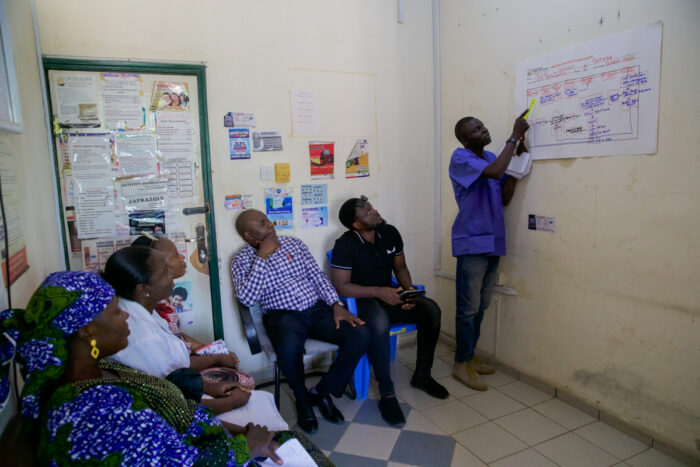
“Following the Program Optimization Approach/Quality Improvement workshop in July 2022, facilitated by the Elizabeth Glaser Pediatric AIDS Foundation (EGPAF), we constituted the facility Quality Improvement (QI) team and met to analyze our early infant diagnosis (EID) cascade and process flow,” says Dr. Lilian Anunobi, Zonal Hospital Okrika’s ART coordinator, and quality improvement lead.
Quality improvement is the process of testing out and implementing incremental changes that lead to rapid improvements in program performance. EGPAF has used this framework to systematically strengthen the quality of care and treatment services across many geographies and programs, enabling providers to identify and improve outcomes for patients, healthcare systems, and organizations.
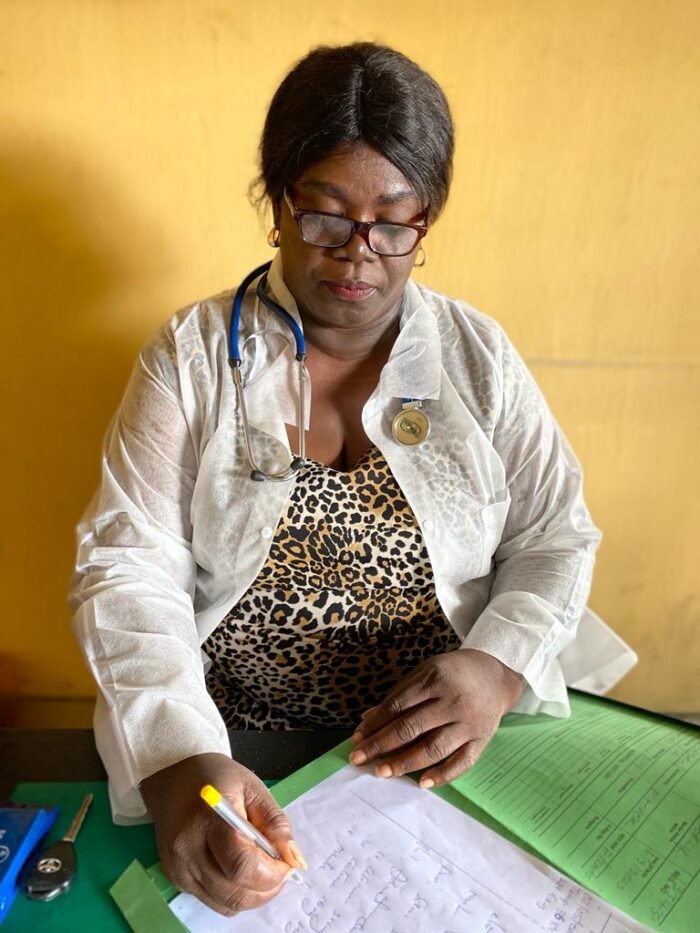
“Improving the services I offer to our clients has been one of my life goals. I feel fulfilled for every child’s life saved. Dr. Lilian Anunobi, Zonal Hospital Okrika’s ART coordinator, and quality improvement lead
“The EID POC [point-of-care] Optimization project is aimed at increasing overall early infant diagnosis. Through the project, we have been able to provide technical guidance to the facility QI teams in developing solutions for identified gaps, implementing tested changes, and documenting lessons for scale-up,” says Nyakno-obong Okon, EGPAF’s technical officer for Program Optimization, Monitoring, and Evaluation.
“As a team, we looked at our EID testing algorithm to identify gaps. We identified HIV-exposed infants who had not received their first rapid antibody test at 9 months, and we commenced our QI project to test a change likely to lead to improvement, says Dr. Anunobi.
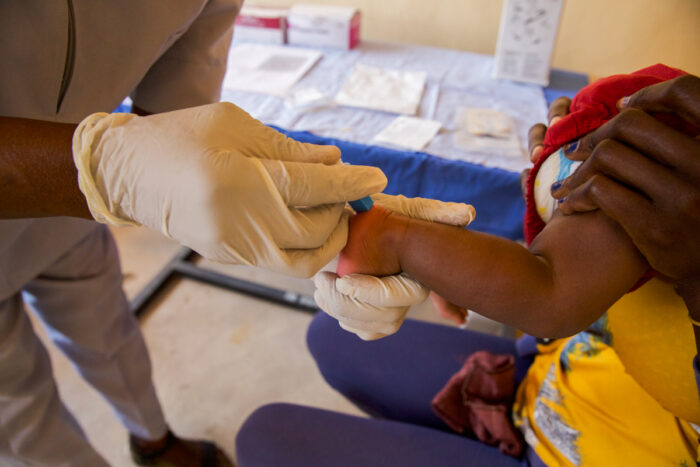
Amaka and her baby were identified through this process and connected to care.
“After counseling me, my baby was tested for HIV in November 2022 and it was reactive, so DBS sample was collected for confirmation and diagnosis, says Amaka. “I received a call to bring him to the health facility. At the health facility, I was counseled and informed that he is HIV-positive.”
While this news was hard for Amaka to take, without care and treatment, 50% of infants infected with HIV will die by two years of age. But with treatment, they can thrive. Amaka’s baby is now linked to care and can live a long and healthy life.
“My baby was always sick, and we kept on treating him for malaria because I never believed he would be HIV-positive. But he is now strong, feeding well, and no longer falling sick as before. I encourage all pregnant women to please go to a health facility, register for antenatal care so that they can be tested and have their baby taken care of,” says Amaka. “I am grateful my baby’s life was saved, and he was placed on ART.”
“Improving the services I offer to our clients has been one of my life goals,” reflects Dr. Anunobi. “I feel fulfilled for every child’s life saved.”
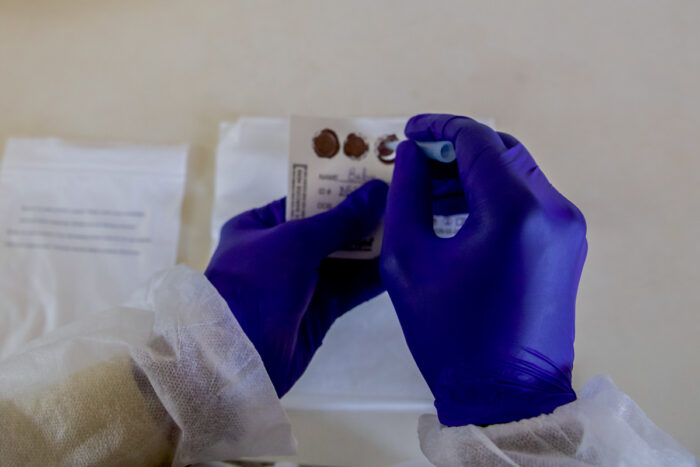
In 2020, the number of children who acquired HIV in 21 focus countries was nearly three times greater than the UNAIDS framework’s global target. Nigeria, among the other five focus countries, accounted for nearly two-thirds of children who acquired HIV in 2020, with a mother-to-child [vertical] transmission rate of 25%.
“At the start of the QI project, we had no idea that such an impact would be created in reducing mortality due to vertical transmission and late diagnosis. The project was indeed a timely intervention, and my team is happy to have implemented a change that saved a life,” says Dr. Anunobi.
Through funding from Johnson and Johnson, EGPAF implements the EID POC Optimization project in Taraba and Rivers states, Nigeria with the aim of improving EID coverage.
Umahi Godwin
Nigeria
Pediatric HIV Diagnosis, Care & Treatment; Point-of-Care Early Infant Diagnosis; Program Optimization


